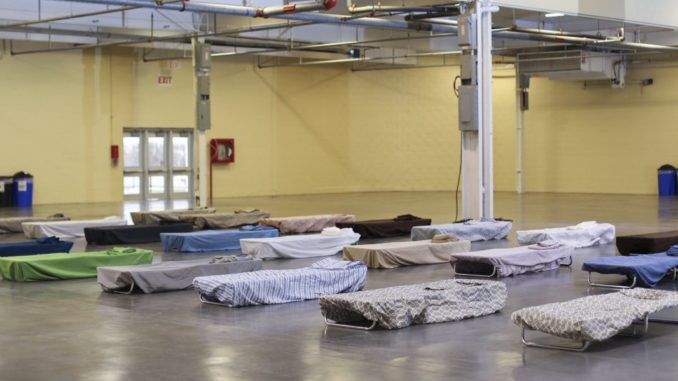
The City of Toronto’s need for federal government support in response to the increase in refugee/asylum claimants arriving in Toronto was confirmed today with the release of the 2018 Street Needs Assessment (SNA) results.
The SNA, conducted on April 26, is a needs assessment survey and point-in-time count of people experiencing homelessness. The results show that there is an increase in the number of people accessing City-administered shelter services, which operate at capacity.
Consistent with data the City has provided, approximately 40 per cent of shelter services users surveyed identified as refugee/asylum claimants. This represents a significant increase over a short period of time (from 11 per cent in early 2016, 25 per cent in late 2017) and continues to put pressure on the City operationally and financially, and has created an unsustainable situation.
Since the increase in refugee claimant arrivals to Toronto that started in late 2015, intensified in 2017 and has continued and further sharpened in 2018, the City has and continues to request:
• the establishment of a federal and provincial co-ordinated regional response to this increasing and acute challenge;
• reimbursement of all costs, including those incurred in 2017 and projected for 2018, which includes an estimate for direct operational costs in excess of $64.5 million, with an additional $6.3 million anticipated as a result of using the college dormitories in the summer; and
• ongoing and stable funding of $43 million a year, starting in 2019, to offset the costs the City will incur responding to the needs of refugee/asylum claimants.
“The City can’t do this alone. The federal government has come forward with initial help but we need the continued assistance of our federal and provincial partners to ensure that Toronto remains a safe, welcoming and accessible place for all,” said Mayor John Tory.
The City continues to see 18 to 20 new refugee/asylum claimants enter the shelter system each day. During the winter months, the demand on the City’s shelter system increases as more people seek shelter from the inclement weather, putting further strain on the system.
The results of the survey provide a snapshot of the scope and profile of the City’s homeless population, such as age, gender, veteran status and/or Indigenous identity, in order to enhance the City’s response. Additionally, the assessment gives a voice to people experiencing homelessness to share what services they need in order to find, and keep, housing.
“In collaboration with the valuable efforts provided by our community partners, City staff work hard to meet the complex service needs of people experiencing homelessness in Toronto,” said Paul Raftis, General Manager of the City’s Shelter, Support and Housing Administration. “The data collected from the 2018 SNA is vital and will be used to improve the housing and homelessness programs provided by the City of Toronto and its partners in order to better serve our clients and more effectively address homelessness.”
The Street Needs Assessment results are available on the Housing & Homelessness Research & Reports webpage at https://www.toronto.ca/city-government/data-research-maps/research-reports/housing-and-homelessness-research-and-reports/.
A backgrounder on the Street Needs Assessment is available at https://www.toronto.ca/home/media-room/backgrounders-other-resources/backgrounder-results-of-the-2018-street-needs-assessment/.
A backgrounder on refugee/asylum claimant arrivals in Toronto is available under the Shelter & Support tab at https://www.toronto.ca/home/media-room/backgrounders-other-resources/.
This news release is also available on the City’s website: http://bit.ly/2rdUXjA

Leave a Reply